Glitz, glamour and Gianfranco: Remembering Chelsea before Roman Abramovich
Claudio Ranieri’s return with Fulham this weekend will bring with it a lot of stories about his time at Stamford Bridge, but the Italian represented the last chapter in an entertaining wider story

Your support helps us to tell the story
From reproductive rights to climate change to Big Tech, The Independent is on the ground when the story is developing. Whether it's investigating the financials of Elon Musk's pro-Trump PAC or producing our latest documentary, 'The A Word', which shines a light on the American women fighting for reproductive rights, we know how important it is to parse out the facts from the messaging.
At such a critical moment in US history, we need reporters on the ground. Your donation allows us to keep sending journalists to speak to both sides of the story.
The Independent is trusted by Americans across the entire political spectrum. And unlike many other quality news outlets, we choose not to lock Americans out of our reporting and analysis with paywalls. We believe quality journalism should be available to everyone, paid for by those who can afford it.
Your support makes all the difference.It is a charming scene now almost impossible to imagine at Chelsea, amid the relentless demands of the Roman Abramovich regime. Scott Minto remembers it fondly, as he adjusted to some of Ruud Gullit’s surprising routines when the Dutch legend became player-manager in 1995.
“Ruud was a big Windsor Davies fan, believe it or not, and used to come in every day with the same line,” Minto tells The Independent.
“Hello lovely boys, let’s have some fun!” the 1987 Ballon D’Or winner would say to his players. “It was literally every day he'd come out with it,” Minto laughs. “And we did have fun that year.”
As well for some time thereafter.
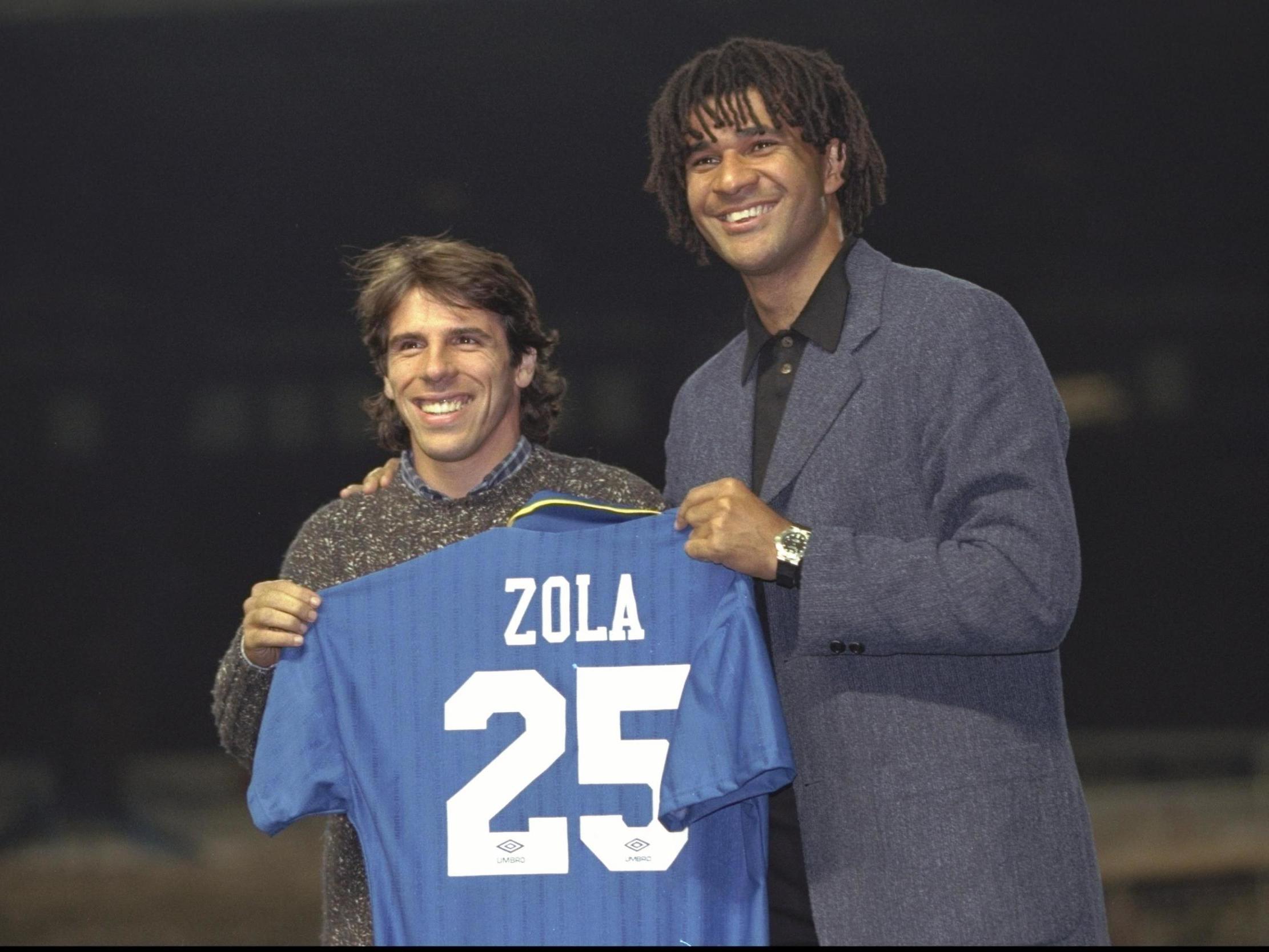
Successor Gianluca Vialli’s introduction having been promoted to player-manager in 1997-98 was no less flamboyant. Although the Italian striker had apparently been anxious about the job having taken over from Gullit just before a League Cup semi-final second leg against Arsenal, he had some way to calm nerves. Vialli walked into the match-day dressing room carrying a bottle of champagne, before giving a glass to every player and raising his own. “All the best to all of you,” he toasted.
Vialli had got the job after Gullit left amid some tension, not least between the two stars, but such anecdotes are still reflective of the exuberant glamour that reigned at the club at the time. Before the cash, there was mainly the flash. Claudio Ranieri’s return with Fulham this weekend will bring with it a lot of stories about his time at Stamford Bridge, but the Italian really represented the last chapter in an entertaining wider story at Chelsea. Consider his immediate predecessor as manager at Craven Cottage. Slavisa Jokanovic isn’t just another Premier League manager who has come and gone, but was another highly technical foreign player to have come and gone at Chelsea between 1996 and 2003.
To add to that list there was of course Gianfranco Zola, Marcel Desailly, Didier Deschamps, George Weah, Roberto Di Matteo, Frank Lebouef, Gus Poyet, Pierluigi Casiraghi, Mario Stanic, Jimmy Floyd Hasselbaink, Emmanuel Petit, Bolo Zenden, Albert Ferrer, Tore Andre Flo and Brian Laudrup. It's quite a turnover of turn-of-the-millennium famous names.
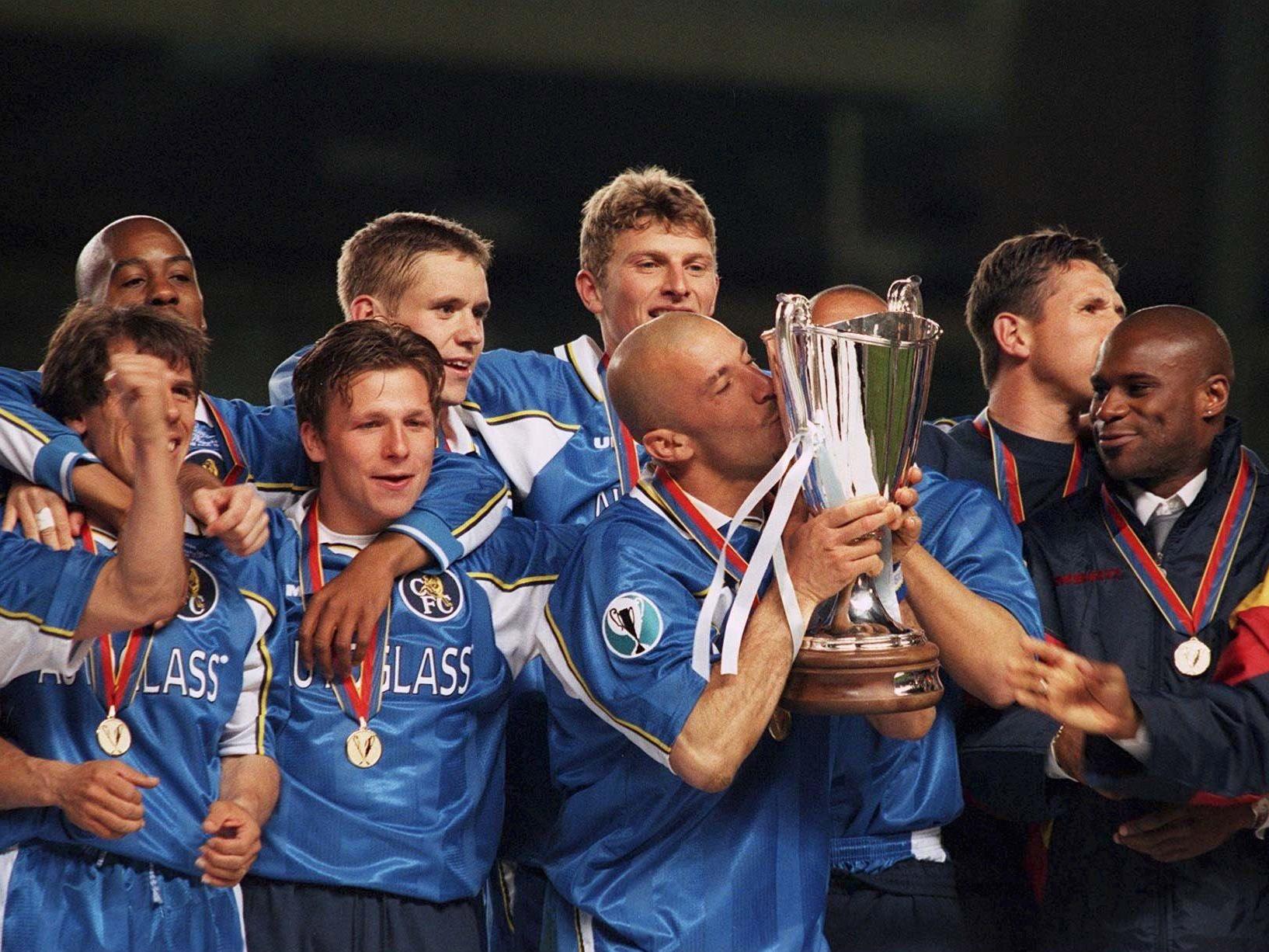
These players produced a series of memorable moments and matches, from the 4-2 FA Cup comeback against Liverpool and the 6-1 over Tottenham Hotspur to so many of the club’s first epic Champions League nights, as well as two FA Cups, a League Cup and a Cup Winners Cup.
This was the high-end identity of the pre-Abramovich Chelsea. They were the first club to really embrace the Premier League’s burgeoning international glamour, and herald what was to come. That was made all too clear on Boxing Day 1999 against Southampton, when Vialli sent out the first ever starting XI in English football to not feature a single British player.
This 1996-2003 “exoticism” - in the words of Frank Lampard - didn’t bring a title, but did give a status that only made the club more appealing to Abramovich.
It was a general international glitz also heralded in the summer of 1996, by a group of foreign signings in Vialli, Lebouef and Di Matteo - with the peerless Zola to come a few months later - that seemed genuinely outlandish for the time. The Premier League still didn’t seem capable of such Serie A signings, and neither did Chelsea. Although the club’s illustrious location and 1960s/70s history as “the Kings of the King’s Road” ensured they were predisposed to such pretensions, there wasn’t much glamour in the time since. Dennis Wise would later laugh about “the poxy little club office in a building which had ivy climbing up the walls” when he signed in 1989.
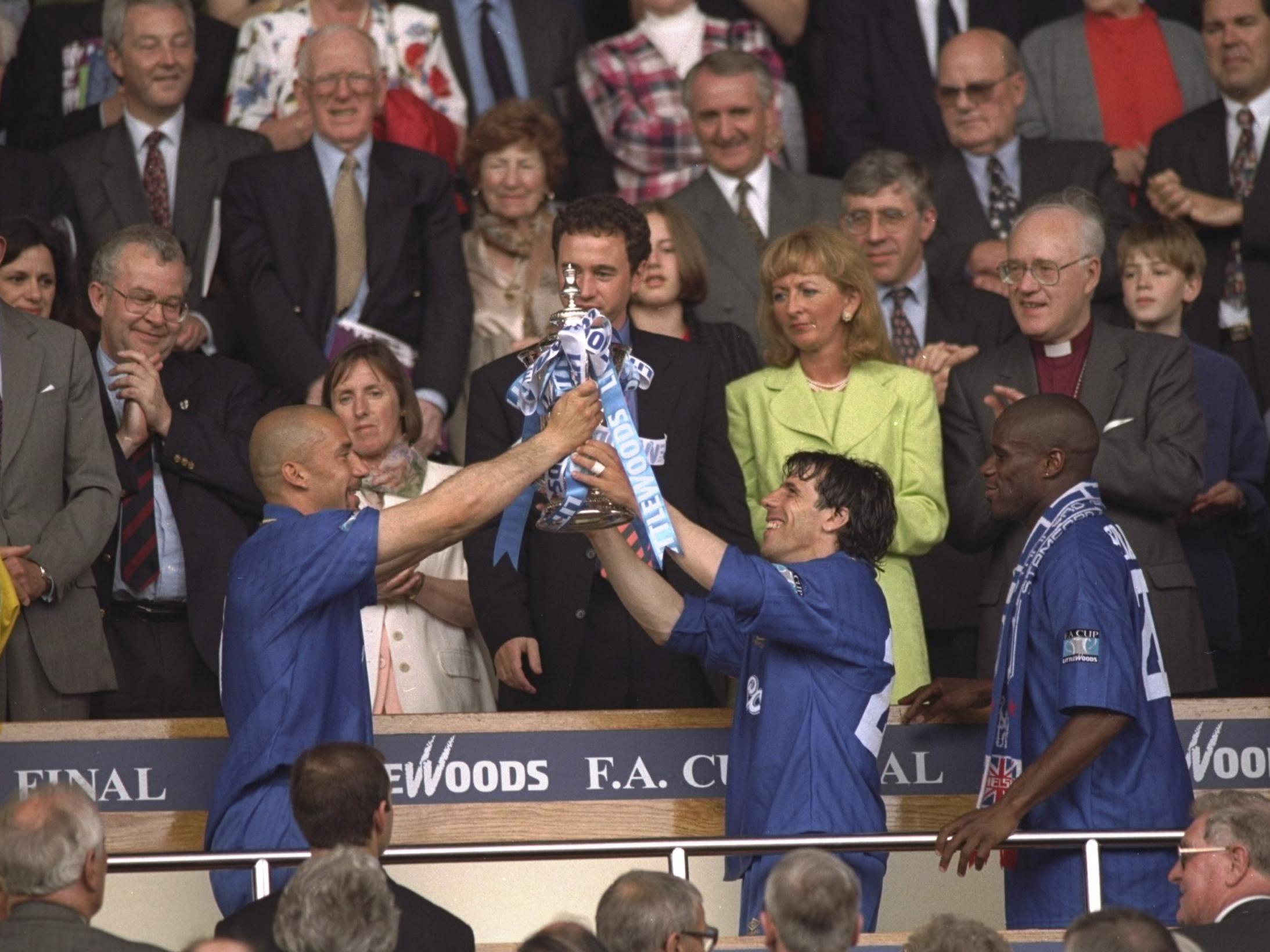
Vialli, Lebouef and Di Matteo were bringing a different world.
“The signing of them was a wow moment,” says Minto, now a TV presenter. “It was a special year. Chelsea was always kind of a sexy club, where it is and what happened in the early 1970s, but it just felt like it was going to another level.”
Minto still feels it was with Glenn Hoddle, manager from 1993 and 1995, who put the platform in place.
“I do think, if you look back, Glenn started it all, and then Ruud took it on. Glenn was clearly an absolute star for anyone in England, but Ruud was a world star. So he could attract these type of people. Clearly when Ruud knew he was going to take over, he looked into his contact book and thought 'who can I bring in'. I do think 1996 was a special year. I don’t think the guys would have signed if Ruud wasn’t in charge.”
Vialli confirmed as much to The Independent in an interview last year.
“I knew Ruud from our time in Italy and he asked whether I want to join,” said the Italian, who recently announced a recovery from cancer. “I said ‘f**king yeah! Of course I want to!’ So I signed with Chelsea.
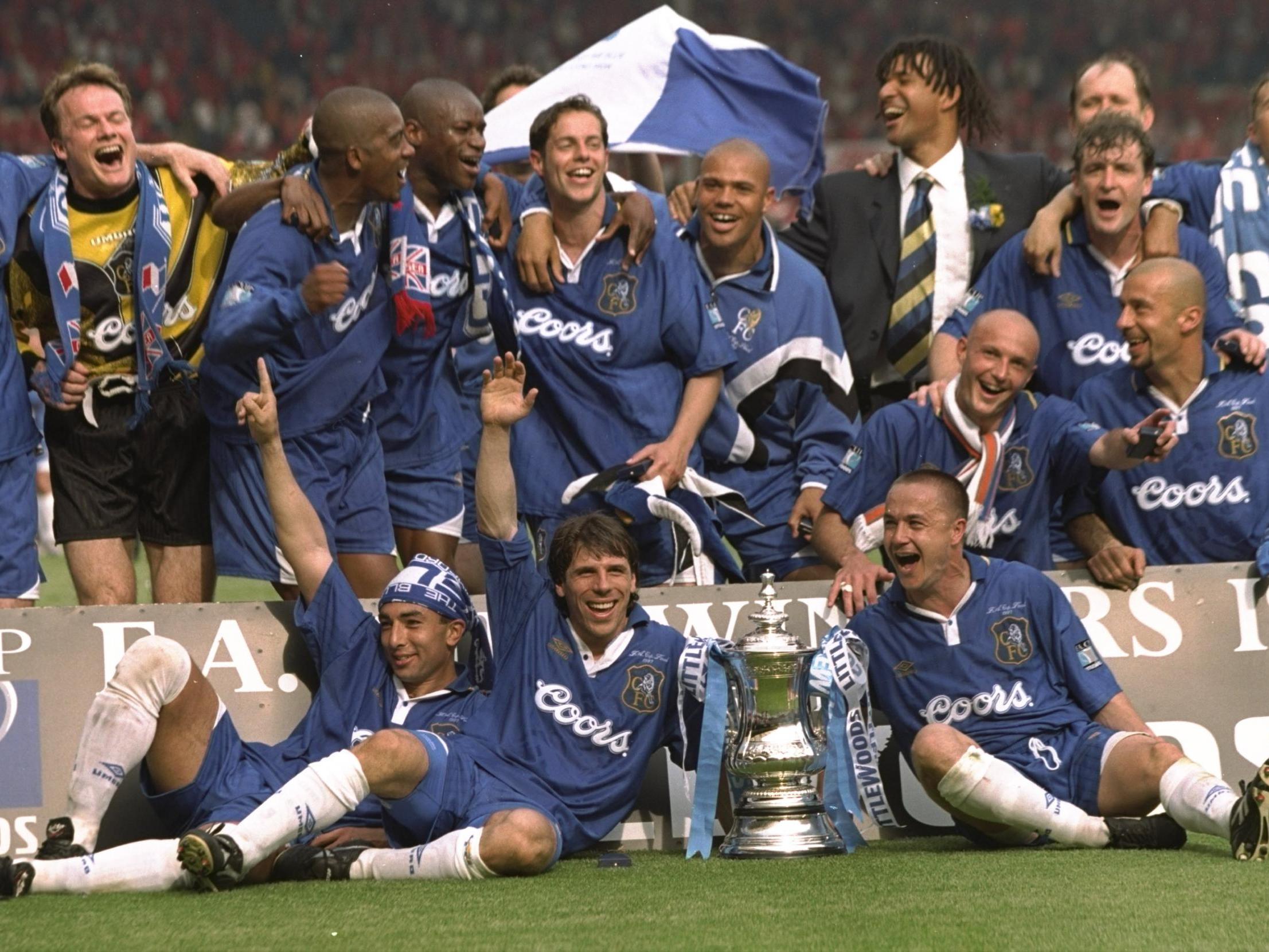
“I fell in love straight away. I just felt so comfortable living in London.”
It was hard not to, given the cosmopolitan area that was so appealing to international stars. Marcel Desailly actually chose Chelsea over Liverpool in 1998 because of the option of sending his children to a French-speaking school, emphasising the club's advantages
A side that had a growing image as posers, meanwhile, was appropriately summed up by - well - a pose. After new hero Di Matteo scored the only goal in a 1-0 win over Middlesbrough early on in 1996-97, the team celebrated by all getting down on the ground and into positions as if posing for a photo shoot.
“If social media was around then it would have been everywhere,” says Minto, who also reveals it wasn’t planned or choreographed. That was illustrative of the off-the-cuff expressiveness encouraged in the side at the time, and best exemplified by the exquisite Zola. All at Chelsea said the Italian was the best they played with, and one of the most humble. He would always turn up on nights out even though he didn’t drink, and even if Erland Johnsen once wanted to change that. The big centre-half grabbed Zola and forced a shot of brandy down his throat. The Italian of course laughed it off.
It was all part of the fun, as Gullit had encouraged. That wasn’t the only famous goal Di Matteo scored against Middlesbrough either. There was the brilliant drive that effectively won the 1997 FA Cup final.
“I do think that was a key moment in Chelsea’s history because it was the first trophy in 26 years,” Minto says. "That momentum was built up and you could see the club was going down a certain route and becoming bigger and bigger.”
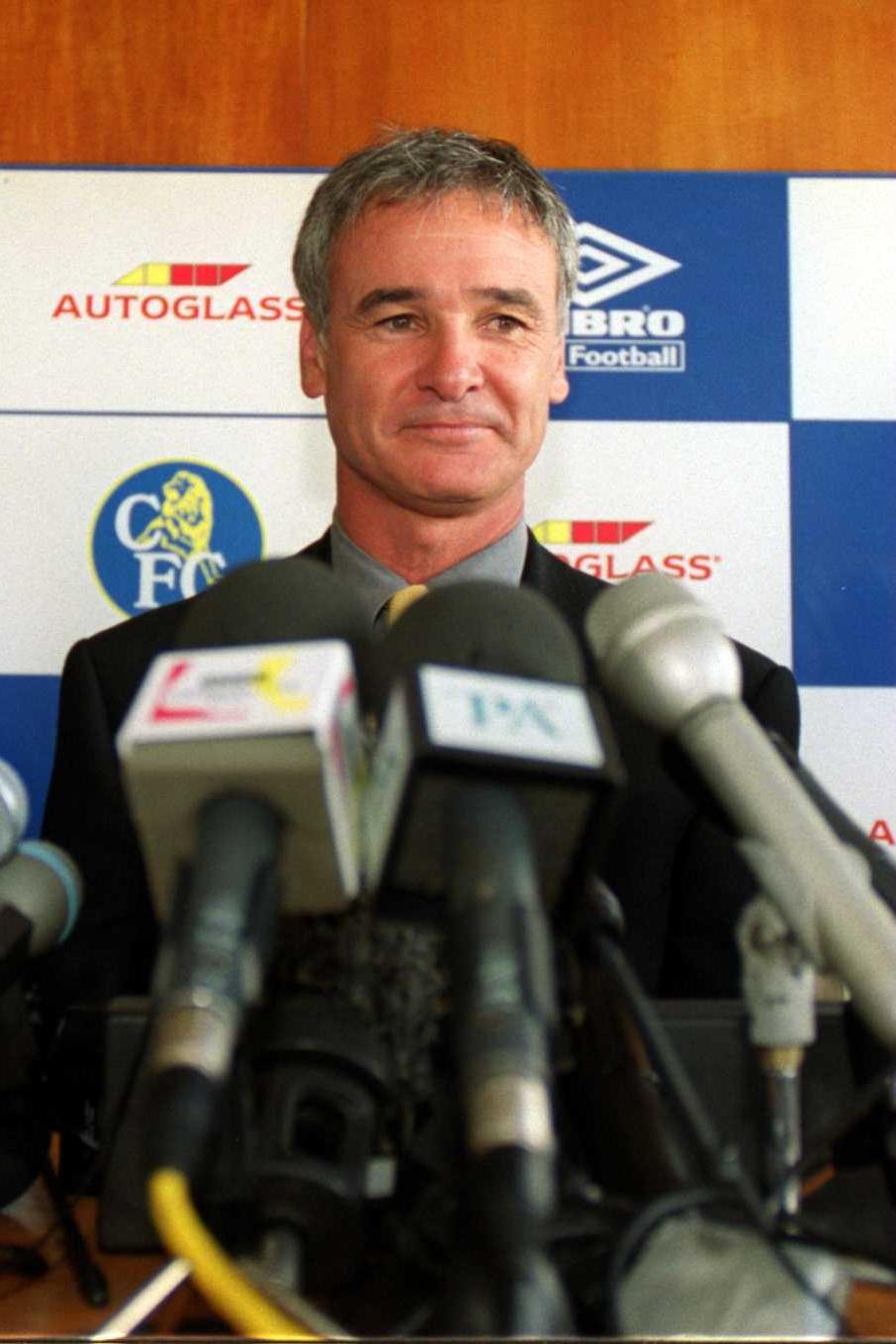
And becoming more and more successful. A contract dispute would see Gullit move on, replaced by Vialli, who fell out with his former friend when the Dutch star preferred Zola and Mark Hughes in a 4-4-2. As boss, however, Vialli would then generally leave himself out - most notably for the 1998 Cup Winners Cup final win over Stuttgart - as the side was becoming further honed. They went 19 matches unbeaten in 1998-99, and still had a chance of the title in April, only finishing four points behind treble-winners and European champions Manchester United. This was their level. A lingering notion among Chelsea fans is they would have won the title had Pierluigi Casiraghi not suffered a career-ending injury.
“Whatever else you might say about this team, we had belief,” Wise said. This was why even Sir Alex Ferguson greatly respected them, never seeing them as the London pushovers he did Tottenham. His love for Zola and the Italian’s ability to “get you on your feet”, meanwhile, was almost endearing.
Ranieri would then endear himself to supporters when replacing a Vialli who had by then lost his touch, but everyone who worked under the current Fulham manager noticed an under-appreciated seriousness - not least the signing who symbolised this in Frank Lampard.
When the young midfielder was choosing where to go after West Ham United in the summer of 2001, he was interested in Leeds United, and met with them. Manager David O’Leary told him “Chelsea were still throwing money at old pros whose hunger for success had long been sated or never amounted to anything more than a big salary”. This was still the image. This was what Ranieri wanted to change, as illustrated by his signing. Ranieri had a specific idea for his place in the team, and what he would do, as the signings became ever more elite. Lampard was impressed. It was in this period that they brought in Hasselbaink and Eidur Gudjohnsen, while John Terry was promoted to the first team.
It wasn’t long, however, until the cracks began to show - the true cost of the glamour. This was circuses for borrowed bread.
Not unlike Leeds, and entirely in-keeping with the period, this Chelsea had been built on debt.
The Financial Times reported that, in 1998, its travel operation - Elizabeth Duff Travel - had a bigger turnover than the actual sporting side. Chelsea had become the first British club to enter the debt market, issuing a £75m eurobond, something that caused a lot of problems when the football market collapsed in 2002.
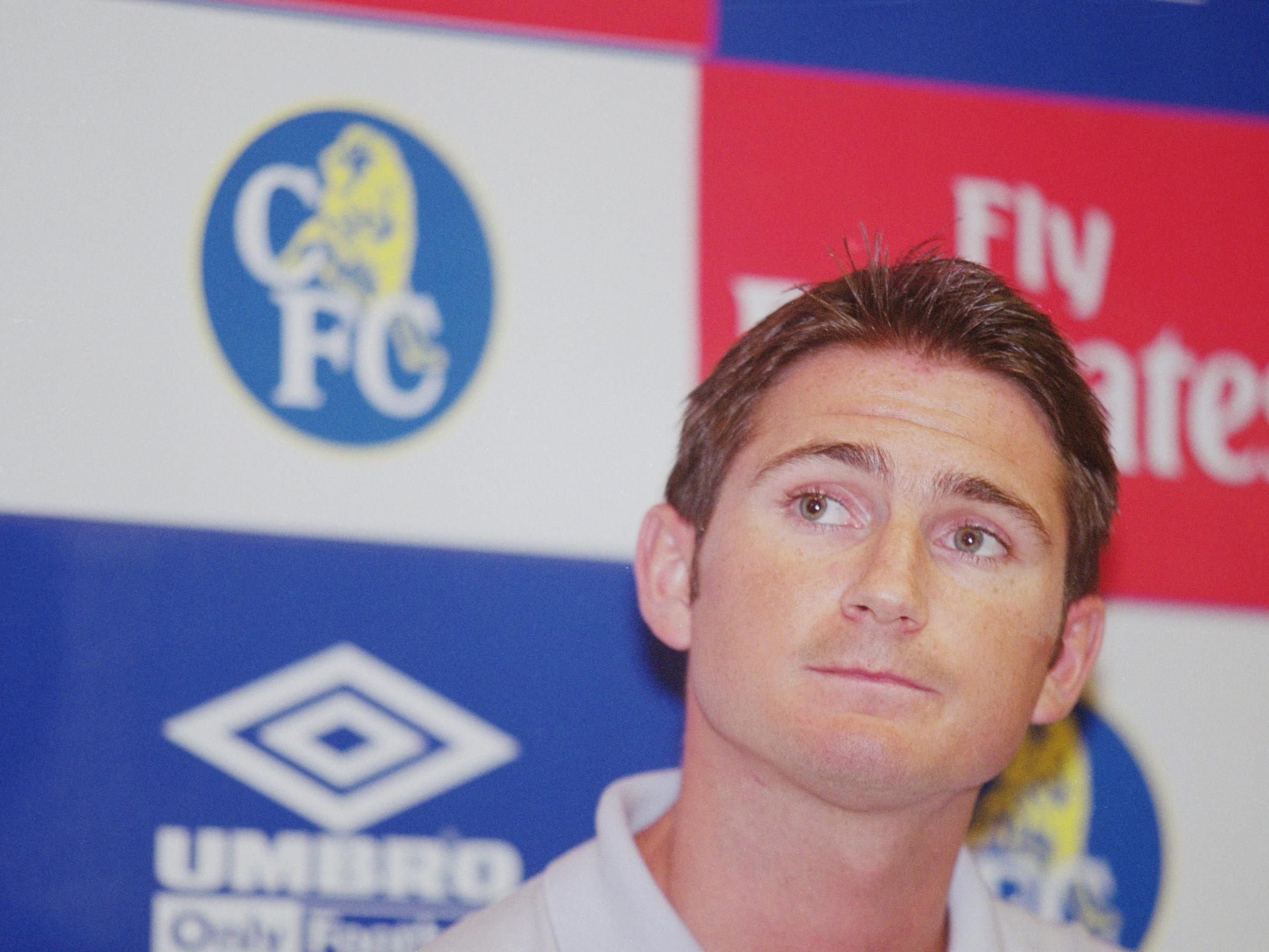
“That close season, for the first time in years, Chelsea didn’t spend big in the transfer market,” Lampard said in his autobiography. “In fact, they didn’t spend anything at all. In previous times there seemed to be a revolving door ushering expensive footballing into and out of Stamford Bridge. The only two players to join in 2002 were on free transfers – Marco Ambrosio from Chievo and Enrique De Lucas from Espanyol. The lack of activity was slightly confusing and only later in the season would the facts emerge about how badly the club was struggling financially.”
It became clear in 2002-03 they would be playing for the club’s future, and that Champions League qualification was imperative, but the rest is history.
Abramovich came in, and everything changed. The glamour, however, was already there.
"I was there when we were just building the foundation for the future that has become the present now," Vialli says.
“The club was in the position to attract a Roman Abramovich,” adds Minto. “OK, financially, they desperately needed an Abramovich, but if Chelsea were in a similar position now, they’d get so many potential owners for so many reasons. It was in effect waiting for that next step.”
And it did involve a lot of fun along the way.
Join our commenting forum
Join thought-provoking conversations, follow other Independent readers and see their replies
Comments